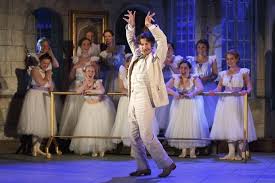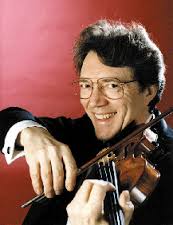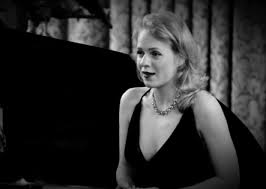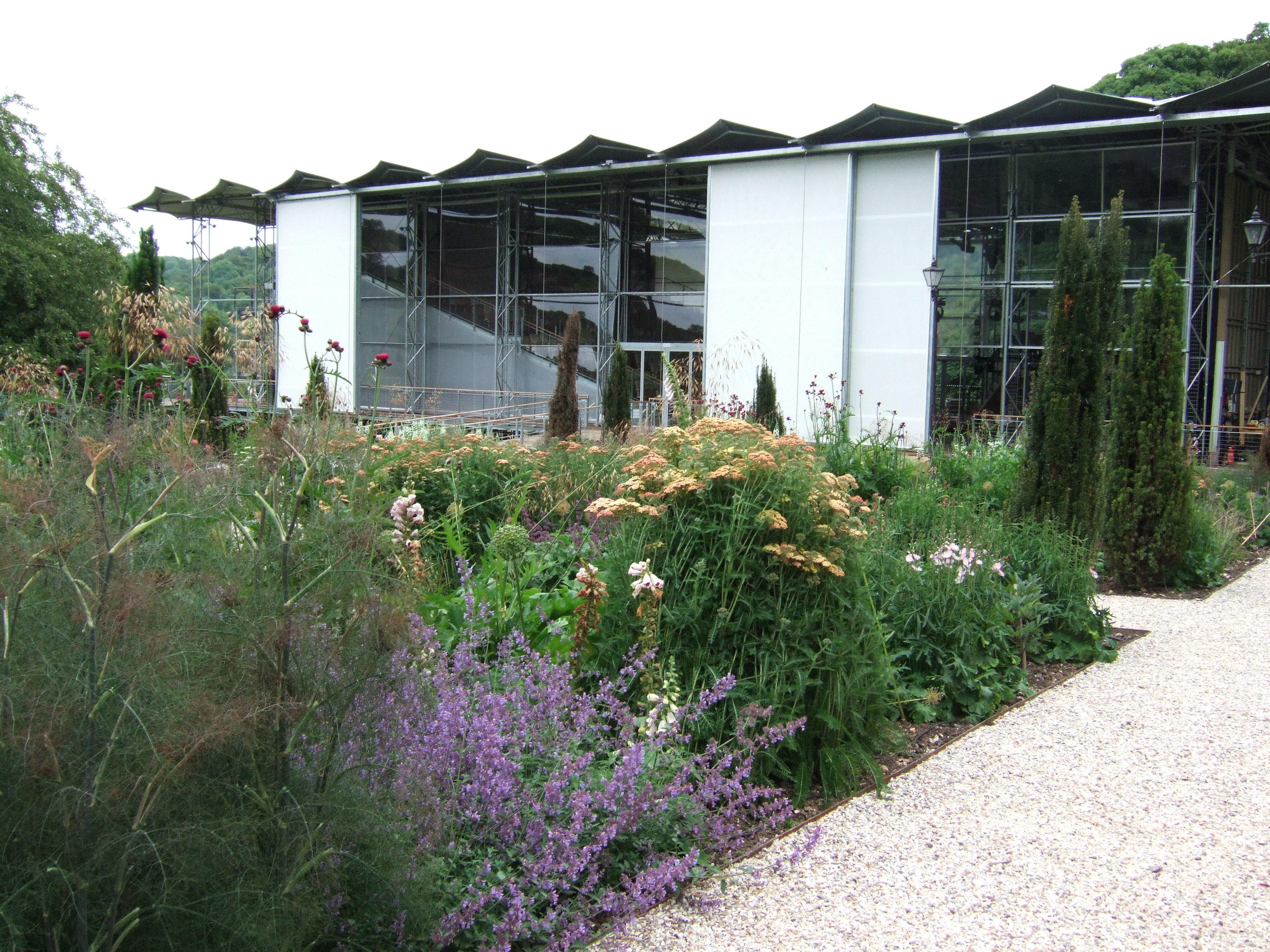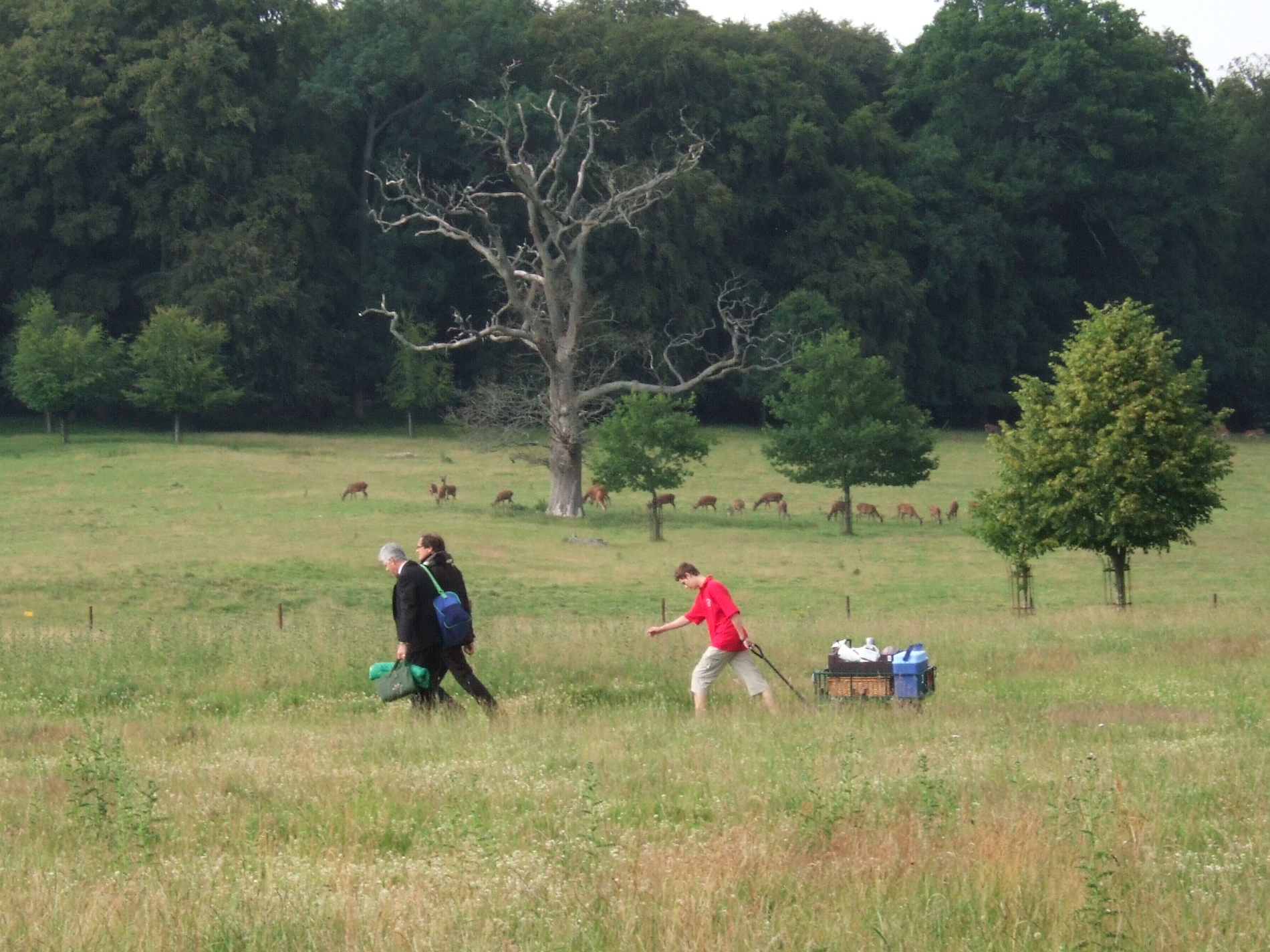Strauss: Arabella
Staatsopernchor & Staatskapelle Dresden, Christian Thielemann
UNITEL CLASSICA 717208
Recorded live at the Easter Festival in Salzburg this year, the production has a welcome frisson not only from the quality of the singing but the simplicity of Florentine Klepper’s production which throws most of the weight onto the singers and the sensitivity of their characterisation. Renee Fleming and Thomas Hampson are outstanding as Arabella and Mandryka, and there is an exceptional Zdenka from Hanna-Elisabeth Muller. Christian Thielemann may look unduly calm in the pit but he has no problem creating the emotional storms the score requires.
Wagner: Parsifal
Royal Opera, Antonio Pappano
OPUS ARTE OA 1158 D
I found this production very effective in the opera house and it transfers to DVD with very little loss of impact. While Stephen Langridge’s production upset some, I found the sense of new life – even of resurrection – at the end completely convincing. The musical quality is also of the highest throughout, Antonio Pappano proving yet again he is a fine Wagnerian, and directs a world class cast led by Simon O’Neill and Gerald Finley. Willard White’s Klingsor is surprisingly sympathetic, shifting the balance of the second act and forcing us to reconsider the moral world Wagner creates.
Mahler Chamber Orchestra
With Steven Isserlis, cello, under Teodor Currentzis
EUROARTS 2059818
This recording was made live in the Concertgebouw, Bruges, in 2013 and brings an interesting if challenging programme. It opens with an exhilarating performance of Shostakovich’s first Cello Concerto with fiery playing from Stephen Isserlis. This is followed by a more reserved Sinfonietta by Benjamin Britten before returning to Shostakovich and his First Symphony. While enjoyable as a one off, it strikes me as an unlikely choice for repeated listening.
Bach: Mass in B minor
Arcangelo, Jonathan Cohen
HYPERION CDA6805 1-2
While some of the solo singing impresses, the approach by Jonathan Cohen is often too staid to involve the listener. The opening sections in particular lack dramatic impact and passion, leaving us feeling the music is worthy but ultimately rather dull. It picks up somewhat from the Credo but by then our appreciation has dropped and it never really recovers a sense of involvement. A pity, the musical qualities are potentially very strong.
Dvorak: Requiem
Warsaw Philharmonic Orchestra and Choir, Antoni Wit
NAXOS 8.572874-75
There was a time when the Dvorak Requiem was as familiar as the Verdi or Mozart settings. As fashions change it seems to have dropped out of the regular repertoire which is a pity for it is a very fine work as we can hear from this new recording with Polish forces under Antoni Wit. At Naxos’ low prices this is a real bargain if you don’t know the work well.
Debussy: La Mer
Singapore Symphony Orchestra, Lan Shui
BIS 1837
The Singapore Symphony Orchestra was very well received when it appeared at the Proms this summer and here prove it was not a one day wonder. The approach to a familiar programme of Debussy – which also includes L’apres midid d’un faune and Images – is sound and musically impressive. Lan Shui has a secure feel for the scores, creating long flexible paragraphs full of individual delights.
GLASGOW TOCCATA – ORGAN MUSIC BY ALAN GIBBS
KEVIN BOWYER, organ of Glasgow University Memorial Chapel
PRIORY 1141 (3 CD set)
This set collects a fine selection of Alan Gibbs’ music expertly performed by contemporary organ champion Kevin Bowyer. It is a follow up to Bowyer’s earlier recording of Gibbs’ music and does not duplicate any of the items on that CD. The organ is the substantial 1927 Willis / 2005 Harrison which sounds superb. The programme is well constructed so that it is an engaging listening experience as well as being a good record of this music. I found the first disk the most enjoyable with its emphasis on hymn inspired pieces but enjoyed the whole recording. The notes group the pieces into particular themes (e.g. “Serial works”, “For Germany”, “For Scotland”) instead of a chronological commentary. I found this to be an interesting way to look at the programme. As well as shorter pieces and sets there are a number of longer pieces including Sonatas 2 & 3.
OLIVIER MESSIAEN – LES CORPS GLORIEUX & other works for organ
KEVIN BOWYER, organ of Glasgow University Memorial Chapel
PRIORY 1142
An interesting comparison to the above CD set is this single disk from the same organist and organ. The other works are Offrande au Saint-Sacrament, Prelude, Monodie and Verset pour la fete de la dedicace. As to be expected this is another polished production. There are notes on the pieces by the performer. The first two pieces were only discovered after the composer’s death. A good all-Messiaen recital for anyone not wanting the complete works.
SAINT-SAENS- ORGAN WORKS VOL 4 Miscellaneous Works
GERARD BROOKS, organ of Collegiate Church of Staint-Hippolyte de Poligny
PRIORY 1107 78’56
It is unfair to judge a single disk from a collection without hearing them all. This is a good recording of a large collection of music and is the final CD of a set of 4. Much of the music is service music which in the context of worship (or as a single item in a more varied concert) would have been fine but I tired of this programme. However, a couple of lively marches towards the end did reawaken my interest. As part of the set I’m sure this is a welcome conclusion but for me it doesn’t really work as a standalone disk.
MUSIC FOR EVENSONG AT GLOUCESTER CATHEDRAL COMMEMORATING THE START OF THE “WAR TO END ALL WARS” ON 4TH AUGUST 1914
GLOUCESTER CATHEDRAL CHOIR, conductor ADRIAN PARTINGTON
JONATHAN HOPE, organ of Gloucester Cathedral
PRIORY 1128
It may be argued that commemorations of the start of the First World War have already reached saturation point. However, it must be said that alongside the need to remember the beginning of such a shameful episode in the history of the modern world, it has been good to revisit some of the largely forgotten musical material from this time. I like the idea of commemorating important occasions with a carefully constructed sequence such as this. Included in this act of worship is an extended chorale prelude and a chant by Ivor Gurney, music from that time by Naylor, Goss and Vaughan Williams. Settings by Neil Cox and John Sanders, both musicians more recently associated with the cathedral, are featured. The service ends with Parry’s “The Wanderer” Toccata and Fugue. Interesting and moving.
THE COMPLETE PSALMS OF DAVID VOLUME 7 SERIES 2
WAKEFIELD CATHEDRAL CHOIR, director THOMAS MOORE, organ SIMON EARL
PRIORY 1120 75’53
Another very welcome addition to the current series of Psalms sung to Anglican chant. This volume covers psalms 89-104. As with previous volumes there is an interesting selection of chants and well chosen registration which brings additional colour and expression to the psalms. The choir creates a very clear sound and, whilst full texts are included in the booklet, it is often possible to completely follow the words unaided. Sadly this is not always the case with recordings or in live situations. This is proving to be an excellent new series.
BH/SP
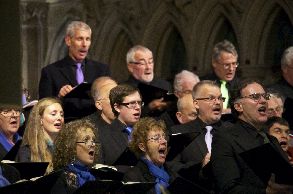 A full house at St Mary-in-the-Castle for the annual Christmas Carols for all and an impressive range of material, given that it followed so closely on their autumn concert. A brisk Ding Dong Merrily on High launched the evening, leading straight into the first of five carols for audience and soloists.
A full house at St Mary-in-the-Castle for the annual Christmas Carols for all and an impressive range of material, given that it followed so closely on their autumn concert. A brisk Ding Dong Merrily on High launched the evening, leading straight into the first of five carols for audience and soloists.

